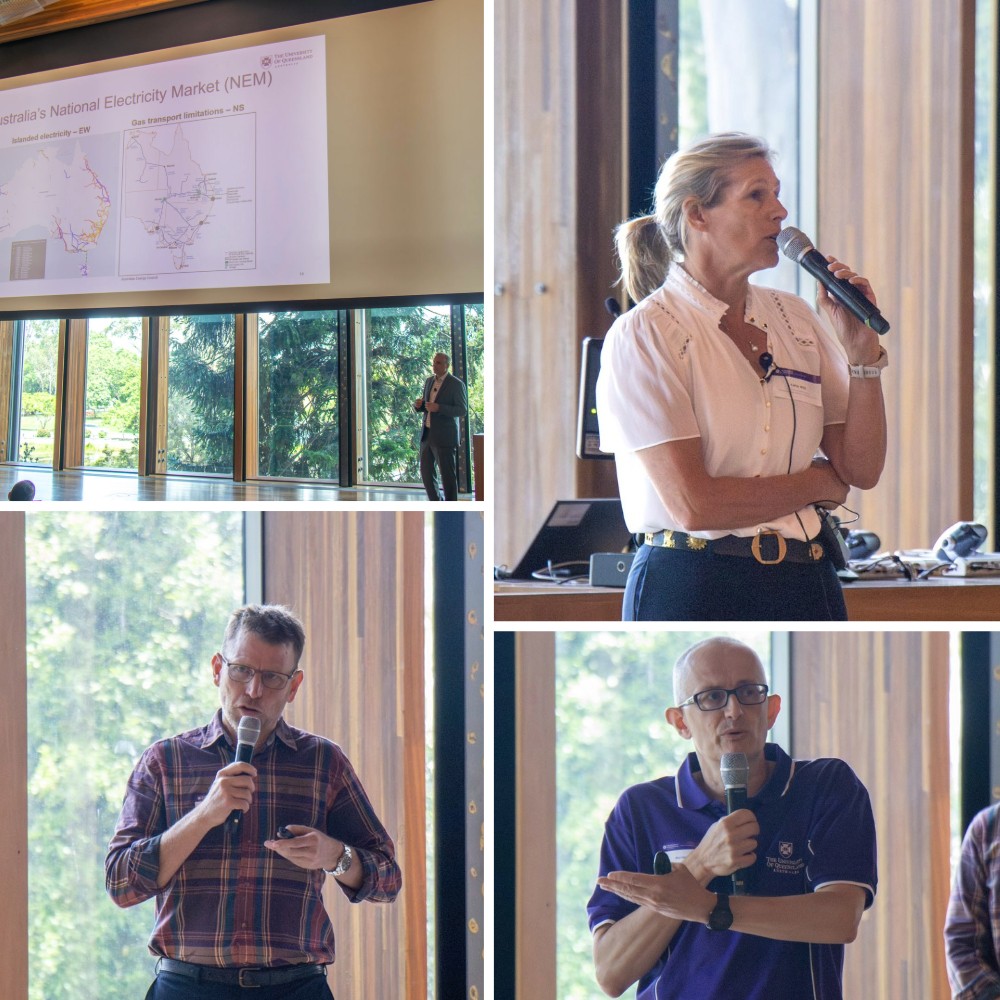 Researchers, policymakers, and industry professionals recently visited The University of Queensland to immerse themselves in energy sector advancements as part of the Gas & Energy Transition Research Centre’s Annual Research Review.
Researchers, policymakers, and industry professionals recently visited The University of Queensland to immerse themselves in energy sector advancements as part of the Gas & Energy Transition Research Centre’s Annual Research Review.
The Review, which has been running since 2015, provides a platform for the Centre’s researchers to share their work and connect with industry and government counterparts who are often dealing directly with emerging challenges in the energy sector.
This year the event was attended by over 125 people who represented more than 40 research organisations, government departments and companies.
Centre Director Professor David Close said the event reinforced the importance of independent research into the energy transition.
“The need for balanced, independent research and academic involvement in energy transition conversations is critical. I think feedback from our guests today confirms this and it’s great to be able to road-test ideas and share work that our researchers are progressing.”
“The conversations during registration around the methane quantification rig, next to posters over pastries, and over some beverages after the event were really valuable – that kind of interaction can’t be replicated in meeting rooms or online. That’s the value in the event for us.”
Showcasing energy transition research
Having re-commenced earlier this year with an expanded energy transition scope, the Centre had organised a program jam-packed with research to share.
Professor Close started the day by reviewing different aspects of the energy transition and the research and policy developments that defined the sector in 2024.
The Centre’s research theme leaders – Dr Joe Lane, Associate Professor Phil Hayes and Associate Professor Kathy Witt – then took centre stage to showcase their teams’ work.
The diversity of expertise within the Centre was clear, with the theme leaders touching on a wide range of research, including methane fugitive quantification and regional mapping; gas supply, transport and storage system analysis; community attitudes to coal seam gas salt and brine management; and more.
Over twenty research project posters were presented on the day. You can view them here.
Obstacles facing energy transition projects
 The second session featured a deep-dive into a critical aspect of the energy transition – new technology acceptance and the obstacles new technology developments can face.
The second session featured a deep-dive into a critical aspect of the energy transition – new technology acceptance and the obstacles new technology developments can face.
Former CTSCo Community and Stakeholder Engagement Manager Nikki Accornero started the session by sharing the challenges CTSCo’s now-rejected Carbon Capture and Storage (CCS) project faced, how the company tried to address them, and the lessons that can be learnt from the experience.
Dr Julie Pearce and Assoc Prof Kathy Witt then joined Nikki for a panel discussion on the subject, focusing particular attention on the experience of CCS in Queensland.
Julie leveraged her extensive background in hydrogeological and hydrogeochemical research to deliver valuable scientific insights into carbon capture and storage (CCS), while Kathy drew on her hands-on experience in regional Queensland to discuss what successful community engagement for new developments requires.
The event’s official proceedings were followed by a networking session where researchers from across UQ’s energy transition network could connect with government and industry counterparts.
If you would like to learn about the wide range of research within the Centre, including what was discussed at the Annual Research Review, visit this page or contact gas-energy@uq.edu.au.



